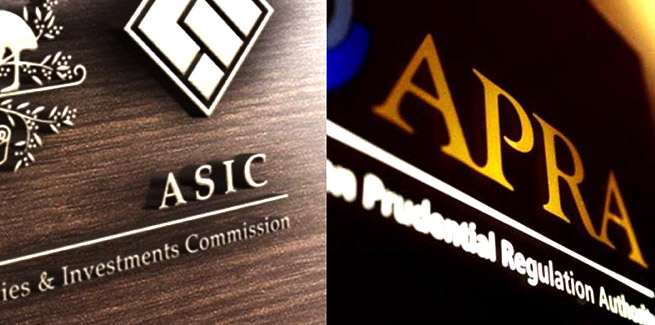In the final report for the Royal Commission into Misconduct in the Banking, Superannuation and Financial Services Industry, which was handed to the Governor-General on Friday (1 February) and publicly released on Monday (4 February), Commissioner Kenneth Hayne addressed weaknesses in the Banking Executive Accountability Regime (BEAR).
The regime, which came into effect for the big four banks on 1 July 2018 and will come into effect for other ADIs on 1 July 2019, serves as an accountability framework, imposing higher standards of behaviour on banks and their senior executives and directors.
Commissioner Hayne in his final report said the BEAR has “both a conduct and prudential outlook”, and therefore recommended that the Australian Prudential Regulation Authority (APRA) and the Australian Securities and Investments Commission (ASIC) jointly administer the regime.
He added that the regime requires authorised deposit-taking institutions (ADI) and “accountable persons” to act with “honesty and integrity, and with due skill, care and diligence” while also requiring them to take “reasonable steps to prevent matters from arising that would adversely affect the ADI’s prudential standing or prudential reputation and their actions”.
The Commissioner suggested that ASIC be responsible for overseeing Divisions 1, 2 and 3 of the Banking Act that pertain to “consumer protection and market conduct matters”, regulating and commencing civil penalty proceedings against contraventions of these divisions when it comes to conduct matters.
“So much is clear from the second reading speech, which emphasised that when community expectations are not met, appropriate consequences should follow for those accountable,” he wrote in the final report.
The accountability obligations under the regime also “reflect the obligations of [Australian Financial Services Licence] holders under section 912A of the Corporations Act.”
“As a practical matter, ASIC must be able to deal with both breaches together,” the commissioner noted.
Meanwhile, according to the financial services royal commission, APRA should be responsible for the prudential aspects of Part IIAA of the Banking Act, bringing civil penalty proceedings for violations of 37G to the extent it is related to prudential matters.
“It would be prudent to enable both ASIC and APRA to seek disqualification of accountable persons if they are satisfied that an accountable person has breached his or her accountability obligations, although I would expect that the power would ordinarily be exercised by APRA,” the final report states.
The Commissioner suggested amendments to sections 37K and 37G(1) to enable joint administration.
While the Financial Sector Union called for the development of a financial services code with a three-tiered standards framework for all financial sector workers, which could extend the reach of the BEAR beyond ADIs and their senior executives and directors, Commissioner Hayne said the obligations under the regime do not need to be expanded as yet.
He did, however, suggest that amendments should be made to sections 37C and 37CA to “make clear that both ADIs and accountable persons must deal with ASIC in an open, constructive and cooperative way, as well as with APRA”.
Further, according to Commissioner Hayne, provisions modelled on the BEAR should be extended to all APRA‑regulated financial services institutions, including licensed registrable superannuation entities and insurers.
But he noted that these changes should be made “sequentially” over time.
“There would be evident advantage in giving notice to all concerned of the general timetable that is proposed, but implementation will depend upon how the changes play out and satisfaction that the changes made are proving effective,” the commissioner wrote.
The Commissioner also stressed the importance of information-sharing between the corporate and prudential regulators, warning that not doing so could result in further enforcement failings.
“The need for ASIC and APRA to co-regulate the BEAR means that the two regulators will have to work more closely than ever across a range of entities and subject matters,” he wrote in the final report.
“Failures to share information, coordinate approaches and act with a consistent purpose will result in duplication of effort or, worse, regulatory failings.”
APRA chairman Wayne Byres mid-last year commented that the BEAR regime will not in isolation “remedy perceived weakness in financial sector accountability”.
“We have encouraged all regulated entities — not just ADIs — to use the new regime as a trigger to genuinely improve systems of governance, responsibility and accountability,” the chairman said.
Find out more about what the final report from the Royal Commission into Misconduct in the Banking, Superannuation and Financial Services Industry means for the broking industry, and what the next steps are, by attending the Better Business Summit 2019.
Running across five different states every Thursday from 14 February, the Better Business Summit provides brokers with straight-talking, practical advice to help them grow and improve their businesses in this time of change.
Tickets are selling out - so make sure you secure your ticket today to stay ahead of the curve and prepare your business.
[Related: APRA releases BEAR guidance]
 ;
;
